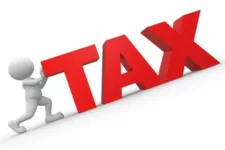In many places around the globe, it is the duty of the taxpayer to meet with the assessor to resolve any issues that may be present concerning the valuation of their real estate industry. As a taxpayer, the first thing that you should do is to contact the office of the assessor and request for a meeting which is one of the most important parts of getting down to the issues in the real estate valuation.
When you call for a meeting request, it is important that you should give a detailed description of the problem, show you the necessity of meeting up. Also, ensure that the meeting gives you enough time to resolve and file returns to avoid any fines.
The first thing you need to have before the meeting is to identify the objective and plan n how to best achieve the outcome. Have it in mind that the office of the assessor may reject the position of the taxpayer but you need to be optimistic. In your assessment challenge, below are some of the most important things that you should keep in check.
1. Fix the facts about your property.
There are various facts and concerns about your property overvaluation that can be addressed and corrected. In the long run, they play a vital role in getting you some substantial savings.
The major reason for a meeting with the tax assessor is to rectify a mistake that could have been made during the assessment of your property. While the computer-generated assessed values are acceptable, it is important to note that there can be mistakes and it is thus important to review the property data with a broader perspective.
You need to pay proper attention to the measurements and address, which are major sources of assessment errors. Ensure that your property is not confused with someone else’s that could be having a greater value. If there have been improvements on your property, it is important to review all the property records to ensure that the improvements are described accurately and that there is an accurate measurement of land. In case of any mistake, it should be immediately brought to the attention of the assessor.
In many jurisdictions, the degree of assessment is dependent on the classification of your property. That is if a property is residential, commercial, or agricultural. Each of these classes has a different assessment percentage of its market value.
The primary classification determinant is based on how the property is being used. For example, if you have the undeveloped property that is classified as commercial but it would be more productive as a farm, it would then be classified as an agricultural property.
In your meeting with the assessor, it is important to bring with you the photos and documents that show the right usage of the property. Unless the property use can be easily recognized and identified, there is an unlikelihood that the office of the assessor will alter its opinion in an informal meeting that seeks to convince the property assessor that the property is overvalued.
2. Ensure that you study the concept being used.
Unless you, as a taxpayer, are a valuation expert, there is a high probability that you are meeting with people that have proper knowledge of the property values than the property owner. It is important to have an understanding of the methods of valuation.
The three valuation approaches accepted are; the cost of the property, the amount of income that the property brings, and the property market comparison of property that resemble yours.
Once you reach a solid conclusion, it is important that you should put into writing all the details of the agreement that you have reached.








